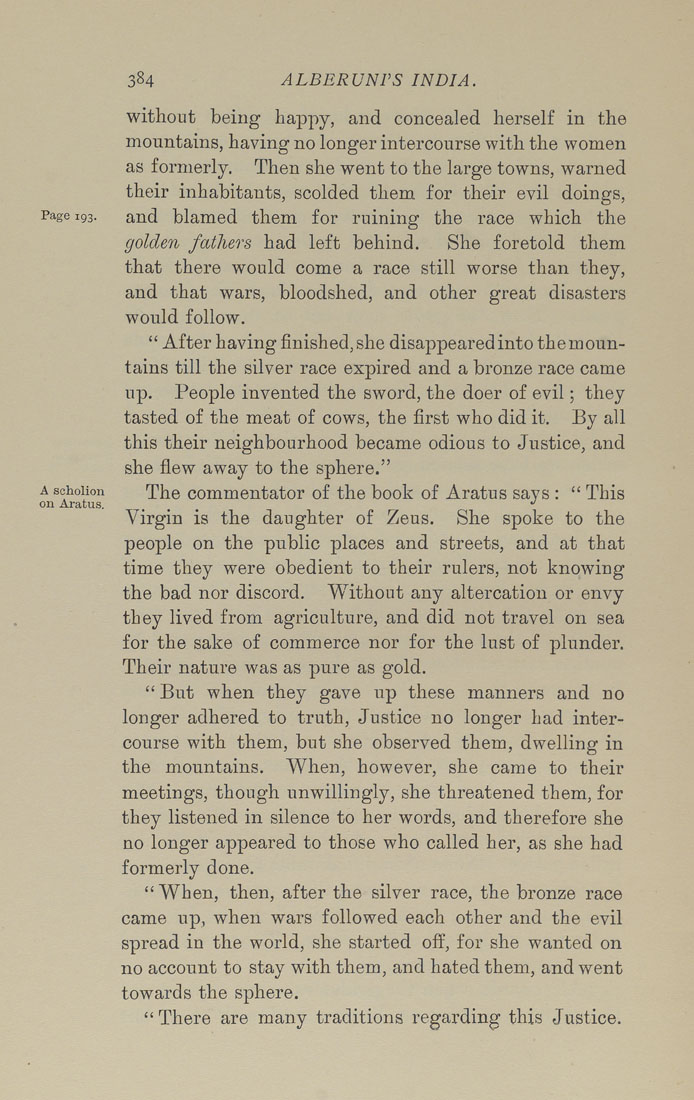Bīrūnī, Muḥammad ibn Aḥmad, Alberuni's India (v. 1)
(London : Kegan Paul, Trench, Trübner & Co., 1910.)
|
||
|
|
|
|
| Page 384 |

384 ALBERUNPS INDIA. without being happy, and concealed herself in the mountains, having no longer intercourse with the women as formerly. Then she went to the large towns, warned their inhabitants, scolded them for their evil doings, Page 193. and blamed them for ruining the race which the golden fathers had left behind. She foretold them that there would come a race still worse than they, and that wars, bloodshed, and other great disasters would follow. " After having finished, she disappeared into the moun¬ tains till the silver race expired and a bronze race came up. People invented the sword, the doer of evil; they tasted of the meat of cows, the first who did it. By all this their neighbourhood became odious to Justice, and she flew away to the sphere." A schoiion Xhe commentator of the book of Aratus says : " This on Aratus. ... Virgin is the daughter of Zeus. She spoke to the people on the public places and streets, and at that time they were obedient to their rulers, not knowing the bad nor discord. W^ithout any altercation or envy they lived from agriculture, and did not travel on sea for the sake of commerce nor for the lust of plunder. Their nature was as pure as gold. " But when they gave up these manners and no longer adhered to truth. Justice no longer had inter¬ course with them, but she observed them, dwelling in the mountains. When, however, she came to their meetings, though unwillingly, she threatened them, for they listened in silence to her words, and therefore she no longer appeared to those who called her, as she had formerly done, "When, then, after the silver race, the bronze race came up, when wars followed each other and the evil spread in the world, she started off, for she wanted on no account to stay with them, and hated them, and went towards the sphere. " There are many traditions regarding this Justice, |
| Page 384 |







